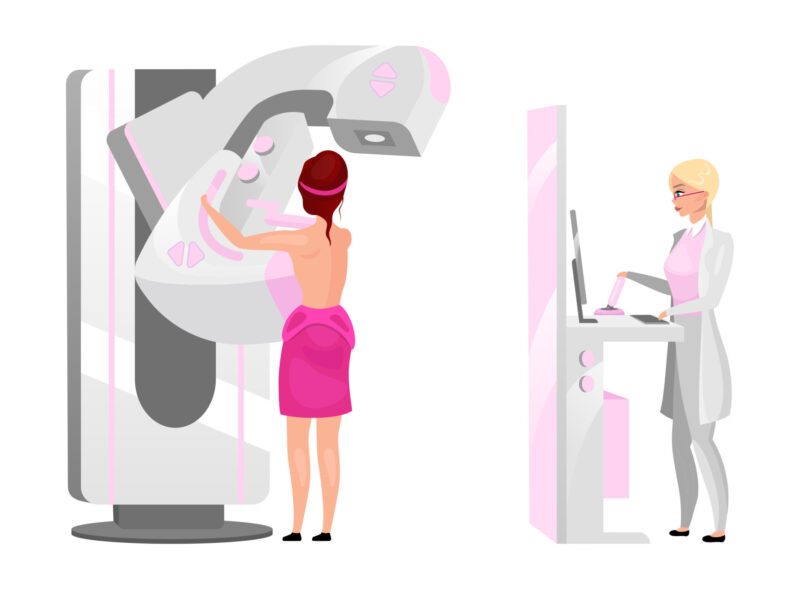Jenna Fischer, the beloved actress known for her iconic role as Pam Beesly on the US version of The Office, has bravely opened up about her recent battle with breast cancer.

Since December 2023, Jenna has been undergoing treatment, but she now joyfully announces that she is cancer-free.
In a heartfelt Instagram post, Jenna detailed her journey, revealing that her cancer was detected during a routine scan in October, which she had initially postponed.
“If I had waited six months longer, things could have been much worse,” she emphasized, highlighting the critical importance of regular health check-ups and screenings.
Her diagnosis came as a shock; she learned she had stage 1 triple positive breast cancer, a type characterized by its hormone receptor-positive nature, meaning it is encouraged to grow by hormones like estrogen and progesterone.

Understanding Stage 1 Triple Positive Breast Cancer
- What Is Triple Positive Breast Cancer?
Triple positive breast cancer is a specific subtype of breast cancer characterized by the presence of three key markers: estrogen receptors (ER), progesterone receptors (PR), and the human epidermal growth factor receptor 2 (HER2). This means that the cancer cells grow in response to hormones like estrogen and progesterone, and they also have an overexpression of the HER2 protein, which promotes the growth of cancer cells.
- Stage 1 Diagnosis
Stage 1 breast cancer indicates that the tumor is relatively small, typically measuring up to 2 centimeters, and has not spread beyond the breast or nearby lymph nodes. At this stage, the cancer is considered localized, making it one of the most treatable stages.

- Treatment Options
Due to its hormone receptor-positive status, triple positive breast cancer is often responsive to targeted therapies. Common treatment options include:
Surgery: This may involve a lumpectomy (removal of the tumor and some surrounding tissue) or a mastectomy (removal of one or both breasts).
Hormonal Therapy: Treatments such as tamoxifen or aromatase inhibitors may be used to block the effects of estrogen and progesterone on cancer cells.
Targeted Therapy: Medications like trastuzumab (Herceptin) are effective against HER2-positive breast cancers and can help prevent the cancer from returning.
Chemotherapy: Depending on the tumor’s characteristics, chemotherapy may also be recommended to eliminate any remaining cancer cells.
Prognosis and Survival Rates
The prognosis for stage 1 triple positive breast cancer is generally favorable, with high survival rates due to early detection and effective treatment options. Many patients achieve long-term remission, especially when they adhere to recommended treatment plans.
- Importance of Early Detection
Early detection through regular screenings, such as mammograms, plays a crucial role in improving outcomes for breast cancer patients. Awareness of personal risk factors and changes in breast health can lead to earlier diagnoses, increasing the likelihood of successful treatment.
- Conclusion
Stage 1 triple positive breast cancer highlights the importance of targeted therapies and the potential for successful outcomes when caught early. With advancements in treatment and a focus on early detection, individuals diagnosed with this subtype can look forward to a hopeful prognosis and a robust support network for their journey.
Jenna’s story underscores the significance of early detection, particularly given that breast cancer is the most common cancer affecting women in the UK, with over 50,000 new cases diagnosed annually. Despite the aggressive nature of her tumor, Jenna was fortunate to have caught it early, which allowed her to undergo surgery followed by multiple rounds of chemotherapy and radiation.
During her treatment, Jenna experienced significant changes, including hair loss, which she candidly shared with her followers. She posted a photo of her “patchy pixie” cut as it began to grow back, symbolizing her resilience. “I’m ready to ditch the wigs,” she declared, reflecting her journey towards reclaiming her identity beyond being a cancer patient.
Throughout her ordeal, Jenna received immense support from friends, family, and co-stars, particularly Angela Kinsey, who portrayed Angela Martin on *The Office*. Angela wore hats to meetings to help Jenna feel more at ease during her treatment, demonstrating the strength of their friendship and the power of community in tough times.
In her post, Jenna not only expressed her gratitude for the support she received but also aimed to empower others. She urged women to take charge of their health: “Get ’em checked, ladies. My tumor was so small it couldn’t be felt on a physical exam.”

Her message is a poignant reminder of the importance of proactive health measures and the life-saving potential of early detection.
As she continues her recovery, Jenna emphasizes that those facing similar battles are not alone. “Should you get a breast cancer diagnosis, there is a village waiting to care for you,” she reassured her followers, inspiring hope and solidarity in the face of adversity.
Jenna Fischer’s journey is a testament to resilience, courage, and the vital importance of awareness in the fight against breast cancer.
Her story serves as a powerful call to action for individuals to prioritize their health and support one another through life’s challenges.
For more posts like this, visit oncodaily.com
For highlights on breast cancer awareness month, click here.
